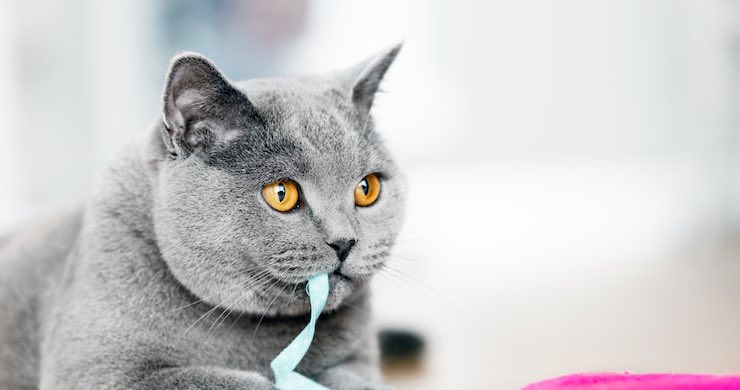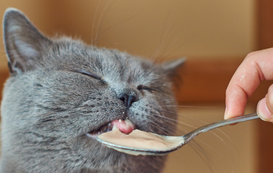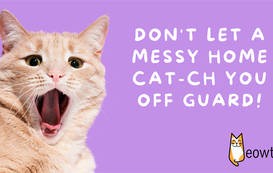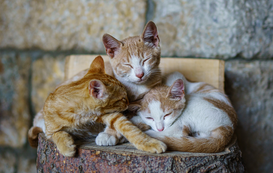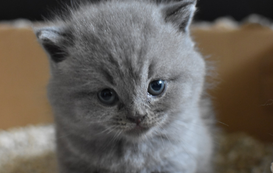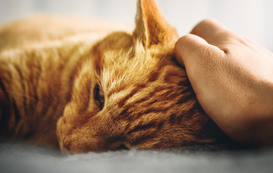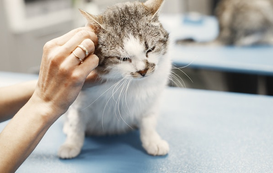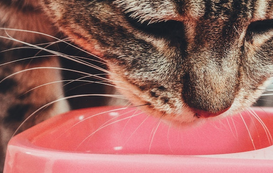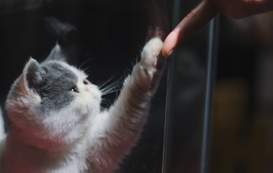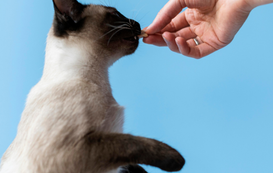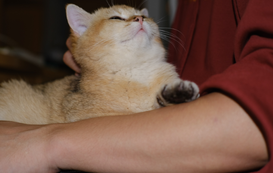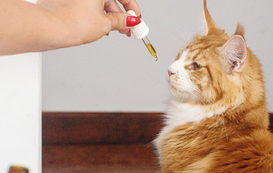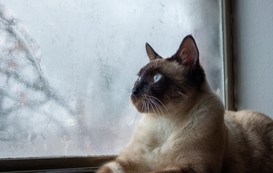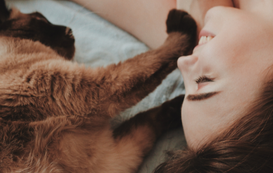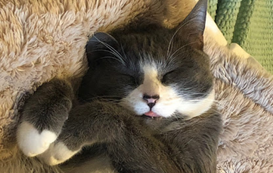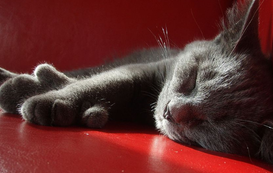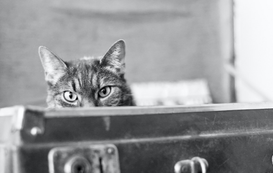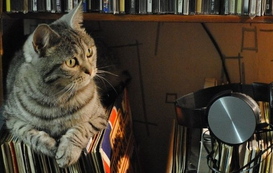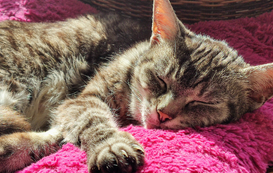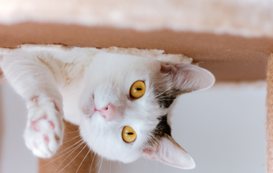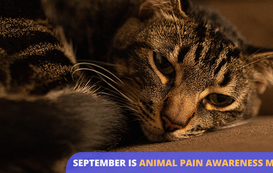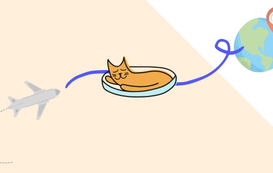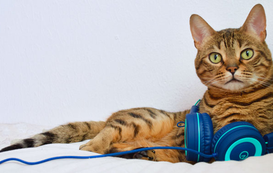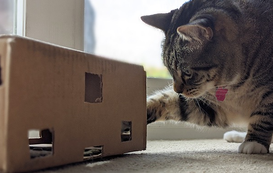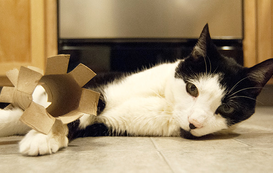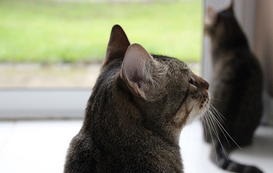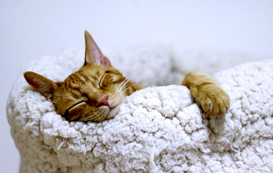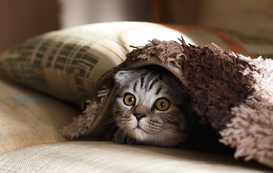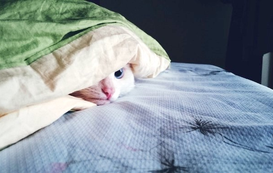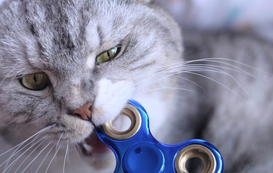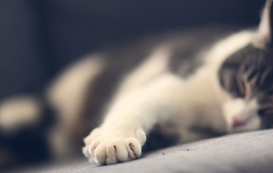We're crazy about cats. We adore (almost) every little thing about them. And while it's true that they can be low maintenance compared to some other pets, they do require proper care, attention, and love. Neglect them and their needs, and they can get upset and show it in smelly ways. If you have a cat who's acting out, you are not alone. The good news is that it's usually pretty easy to find the inspiration of your furry housemate's wrath.
First things first:
When was the last time your cat had a trip to the vet? If your pet's behavior suddenly changes for the worse, it's smart to rule out any medical issues first.
Second:
Have you made any big changes at home?
- Is there anyone new living in your space? Has a new roommate, family member, or pet joined your crew?
- Have you changed their litter? Or even changed where you keep their litter?
- And last, but most certainly not least, did you leave them alone while you traveled recently?
Why Is Your Cat Acting Out?
Cats are creatures of habit, and they don't always embrace change. Sometimes, they actively fight change. It's vital for you to spend the time to introduce a new pet into your home slowly. Make sure other humans are respecting your cat's space, too. Does your new roommate like to chase your cat around the living room, or treat your cat like a dog? Remember, as aloof and independent as cats may act, you are their protector and guardian. Pay attention to what could be stressing them out, and adjust accordingly.
Not sure what could possibly be making your cat upset? Let's go back to the "last but not least" item on the checklist. Have you been traveling lately? Did you leave your cat alone for more than a few days? It's pretty common to get a less than warm reception upon returning home if your cat had to endure the stress of being alone while you were gone.
Try not to get frustrated with them if they act out. It's not like they have a lot of other options for getting their point across. Listen to what their behavior is telling you, and fix the underlying problem. Here are some common ways your cat may try to communicate their needs with you.
Is Your Cat Scratching and Clawing on Everything?
No, we aren't talking about the Ted Nugent song. We're talking about why cats sometimes feel the urge to scratch everything they can get their sharp little claws on. According to the Humane Society, cats scratch for a number of different reasons. Scratching helps remove dead layers off their claws. Scratching also marks their territory by both leaving a visual clue and the cat's scent. Plus, it's a really good stretch for their bodies, feet, and claws, like kitty yoga.
Scratching is not inherently a bad activity, and it's not something you should try to stop your cat from doing altogether, especially through negative reinforcement. Unless you catch a cat in the act of scratching an inappropriate surface, scolding or punishment won't help anyway. When they're not actively engaged in the unwanted behavior you'll just end up with a confused, sad cat. They can't put two and two together to understand why you are upset with them.
Kitten clawing shoes.
Most unwanted scratching can be diverted to an appropriate outlet. Cat scratching the sofa? Make sure it has an accessible, and acceptable, scratching post. If the excessive scratching happens while you are away, make sure to talk to your cat sitter on Meowtel about it. Did their scratching post fall down? That could make a proper scratching post a less appealing option, and kitty may opt for the couch instead. Adjusting their toys or adding a little extra catnip on their post could be all it takes to get them out of your curtains.
The Clinical Term is "Inappropriate Elimination"
Admit it, you're a bit particular about where you go to the restroom, too. You want a clean, private place where you feel comfortable. Cats feel the same way and their instincts play a role as well. In the wild, cats both openly mark their territory with scents (like urine), and they bury their feces to avoid predators. Dr. Sophia Yin explains that one reason cats need a clean box is they "want to put their urine and stool where there is no other. This is why they hop right in the box as soon as you clean it and put fresh litter in ... if a cat sees or smells stool or urine in the box, it is already marked to them ... A dirty box tells them to go elsewhere."
Understandably, they can get awfully finicky about their litter box. If your kitty is going outside the box, rule out any medical issues, first. UTIs, stomach bugs, and even achy joints can impact a cat's willingness to use their litter box. According to Carmela Stamper, a veterinarian at the FDA's Center for Veterinary Medicine (CVM), osteoarthritis in cats is more common than you might think, and can make jumping in and out of a litter box painful.
If your cat has a clean bill of health and is STILL going outside the box, a few other things could be the culprit. It might be the location of the litter box, the type of litter, that it hasn't been scooped to the cat's liking, or, it could be stress. Cats get anxious, and when they do it's pretty common for them to inappropriately eliminate.
Don't Stress Me-owt!
Try to pinpoint the cause of stress. If it's from a change in your household, brainstorm ways to ease the transition. If it's because their box is dirty, make sure someone is scooping it at least once a day.
Another big cause of kitty stress is being left alone. They do miss you when you're gone. If you've been traveling more than usual or you've just returned from a long trip, it's likely your cat got lonely, scared, and stressed out. So, make sure you are providing companionship for your buddy while you're gone. Have you watched Orange is the New Black? Solitary confinement - or the SHU - can make the best of us a little cray-cray.
Does kitty know you're leaving?
We knew a cat who peed on her owner everytime she returned from a vacation. This cat would wait till her person was asleep under a down comforter, lay directly on top of her, and let it all go. Hundred of dollars in laundry and vet bills later, the doctor confirmed that the cat was just acting out her stress. So yeah, revenge pooping (and peeing) is really a thing
Help! My Cat Tears Up the House!
Another common reaction to stress (and boredom) is to go on a destructive bender. Acting out by knocking things down, swiping items off counters and generally trashing your place is another way your cat might be trying to tell you something. This behavior is especially dangerous for your kitty. If something glass gets knocked over, broken, and your cat steps on it, your poor kitty could get cut and hurt. Hiring a responsible caregiver while you're away, keeps your beloved pet - and your prized possessions - safe.
The Silent Treatment
Remember that cat who peed on her owner when she got mad? She'd also turn into a straight-up ice queen when her owner dared travel. She'd give her human a cold stare, flick her tail, then retreat under the bed for days. Every. Single. Time. Are you thinking "What? My cat practically screams at me when I get home!" Well, that's pretty normal too. Some cats go silent, but some get LOUD. However they choose to communicate, the message is pretty clear: please, please, please don't leave me all alone like that ever again!
What Kind of Vacation do Cats Like?
Cat Analyst Rita Reimers confirms all this behavior is pretty typical of lonely cats. "A cat left on his own for prolonged periods may use your bed for a litter box, knock things over or tear things up around your home out of boredom, and they may even become reclusive and antisocial." Doesn't it break your heart to think of your cat scared, lonely, and stressed out? Now imagine how it feels for your cat! Our cats are our family, and we took on a big responsibility when we chose to become their person. Make sure they get the care and companionship they need in the safety and comfort of their own home.
You may have noticed - most cats don't like to travel. Bringing your kitty on your next business trip or vacation could be even more traumatizing for him or her than leaving them home alone. Boarding your cat in an unfamiliar place can also be extremely stressful. Avoid all these scenarios by using a cat sitter you trust and giving your kitty a great staycation at home where they're most comfortable.
Ready to decode your cat's quirky behavior? Find a cat sitter on Meowtel today!

